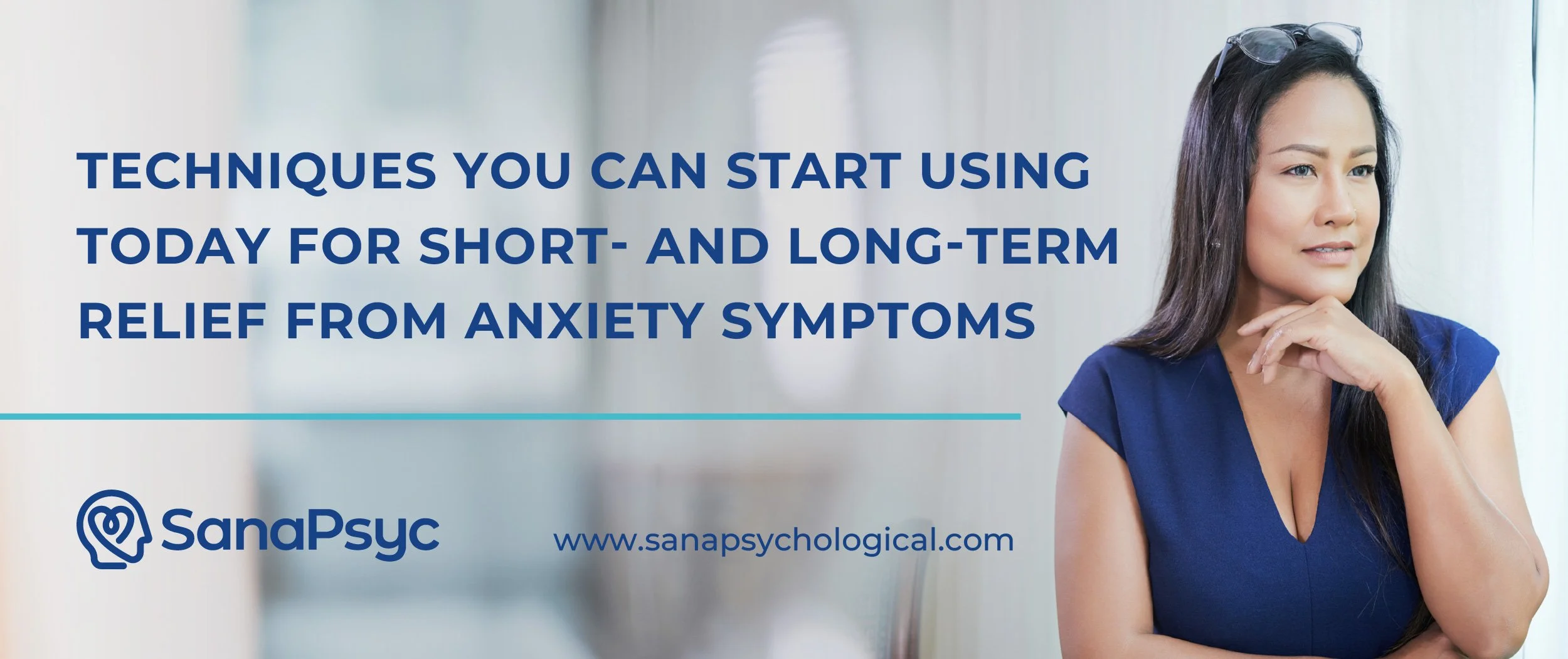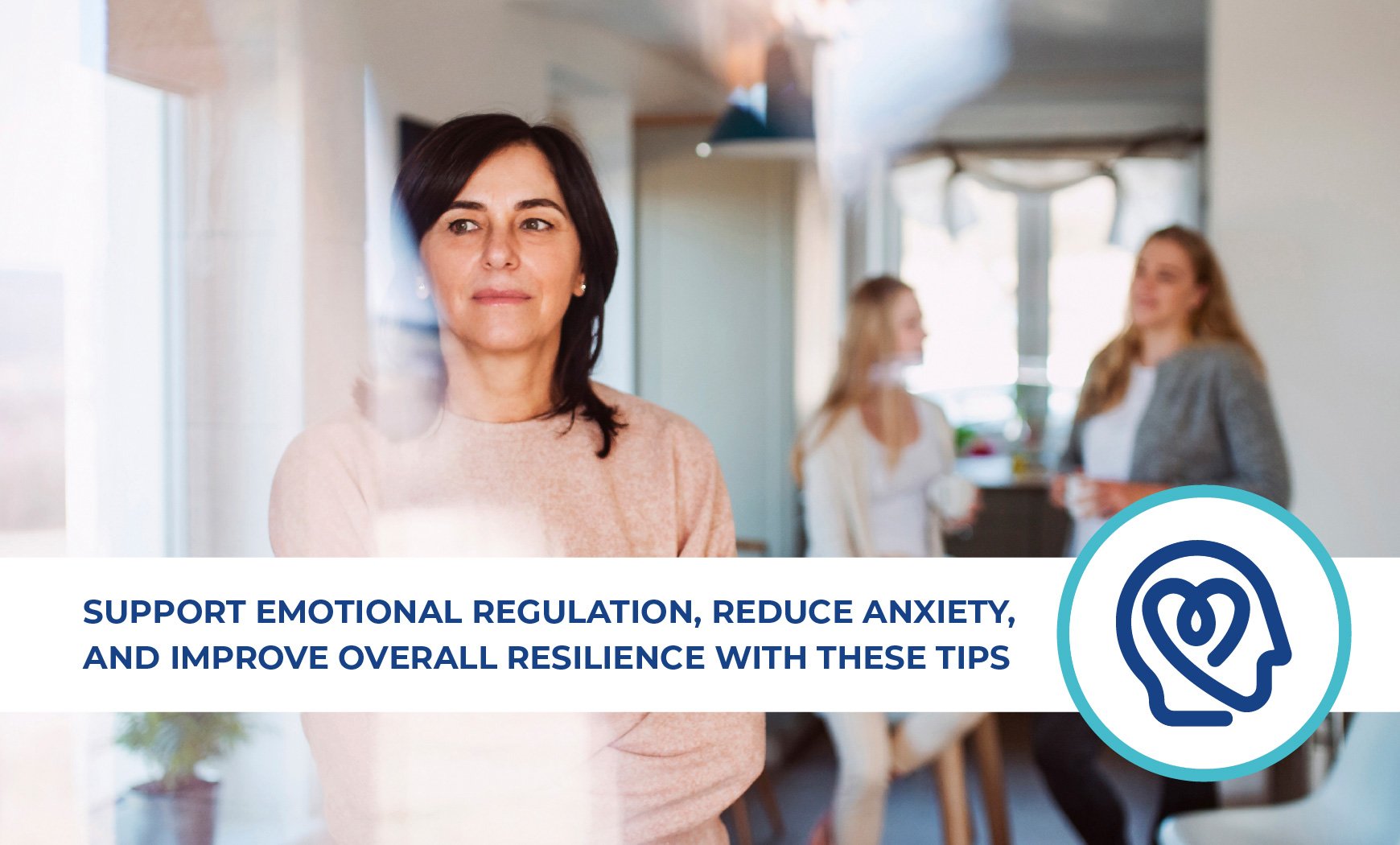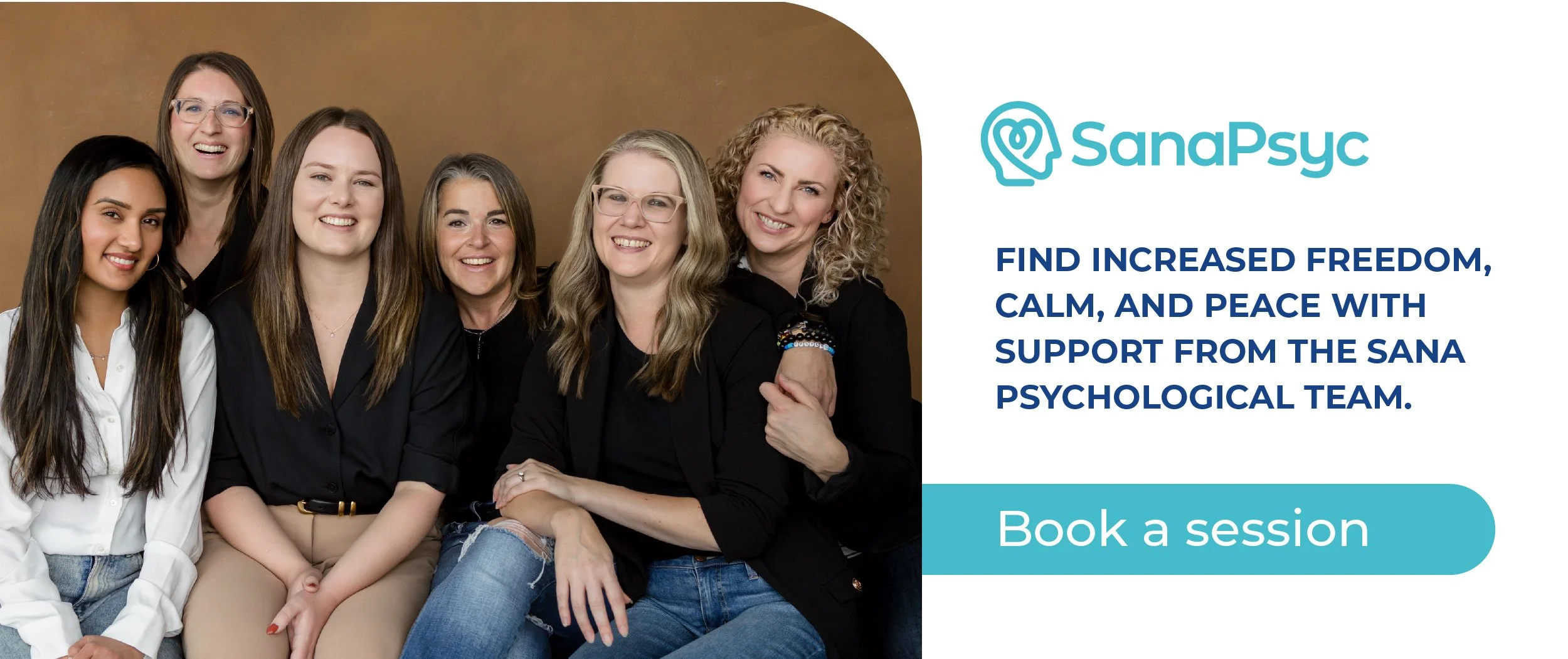How to Calm Your Nervous System: Tips from Trauma Counselling Calgary Therapists
Have you ever been told to “Just calm down”? Isn’t this the most infuriating thing in the world? Of course if you could calm down, you would have! Sometimes a feeling of calm feels impossible to access and leaves one feeling uptight, frustrated, and alone. In this article, our trauma counselling Calgary therapists share a broad array of techniques that you can start using today for short- and long-term relief of anxiety symptoms connected to traumatic experiences.
Nervous System Basics from Trauma Counselling Calgary Therapists
The nervous system is the body's primary communication system, controlling everything from basic functions like heartbeat and breathing to more complex behaviours like emotions, thoughts, and decision-making. It plays a pivotal role in how we respond to the world around us— especially when it comes to experiences that people seek out trauma counselling for.
Trauma, whether physical, emotional, or psychological, significantly impacts the nervous system. Trauma refers to experiences that overwhelm a person’s ability to cope, whether that’s a sudden accident, ongoing abuse, loss of a loved one, or a traumatic event like war or natural disasters. The impact of trauma can affect both the body’s response to stress and the mental health of an individual.
When a person experiences trauma, the sympathetic nervous system (SNS) is activated, triggering the "fight or flight" response. This is an automatic survival mechanism that prepares the body to react quickly to danger. While it is our body’s natural way of responding to threats and danger, the activation can lead to long-term consequences, according to our trauma counselling Calgary specialists. In the case of trauma, the nervous system might get "stuck" in this activated state, making the individual hyper-alert or anxious even when there is no immediate threat. This state is often referred to as hyperarousal.
In some cases of extreme trauma, particularly in situations where escape is not possible, the body may enter a freeze or dissociative state, often described as a "shutdown." This is part of the parasympathetic nervous system (PNS) response, which is our body trying to help us cope and survive, according to our trauma counselling Calgary therapists. The activation of this system can lead to feelings of numbness, dissociation, or immobilization, where the individual feels disconnected from their body or reality. This response can happen in situations like extreme fear, abuse, or during prolonged stress (e.g., chronic trauma or neglect).
Over time, repeated exposure to trauma can cause chronic stress that leads to nervous system dysregulation. When the body's stress response becomes overactive or prolonged, it can lead to:
Chronic anxiety or panic attacks (take our free self-check quiz)
Depression (take our free self-check quiz)
Sleep disturbances (learn how to sleep better)
Hypervigilance (being constantly on guard)
Digestive issues
Difficulty concentrating or memory problems
This dysregulation in these core systems can prevent the person from returning to a calm state after the threat or stress is over, leaving them in a persistent state of alert or emotional numbness according to our trauma counselling Calgary experts.
Nervous system regulation strategies help maintain or restore balance in the autonomic nervous system, particularly between the sympathetic ("fight or flight") and parasympathetic ("rest and digest") systems. These strategies can support emotional regulation, reduce anxiety, and improve overall resilience.
Regulation Strategies From Trauma Counselling Calgary Therapists
Here are effective nervous system regulation strategies, organized into different categories:
Somatic (Body-Based) Strategies
These directly engage the body to influence the nervous system and can be simple but powerful, according to our trauma counselling Calgary therapists.
Deep Diaphragmatic Breathing
Slows the heart rate and activates the parasympathetic nervous system.
Try: Inhale for 3 seconds, hold for 4, exhale for 6 seconds. Our trauma counselling Calgary therapists suggest exhaling for twice as long as you inhale, so this can be a 4-4-8 count breath exercise if you prefer.
Progressive Muscle Relaxation
This practice involves tensing and releasing muscles sequentially to release stored tension moving from toe to head. For instance, start by squeezing and holding tension in your toes, then releasing. You can then move up to your feet, ankles, calves, thighs, hips, stomach, chest, and so on until you reach the top of your head. Our trauma counselling Calgary therapists have noticed this is a great exercise for people who are newer to relaxation as the physical component provides added focus.
Cold Exposure
This can look like splashing cold water on the face, putting a cold cloth over your eyes, submerging your hands in cool water, drawing on your body with an ice cube, cold plunging, cold showering, or drinking a cold glass of ice water. However you expose yourself to cold, our trauma counselling Calgary therapists find it can be helpful, especially for immediate moments of panic or anxiety, as it stimulates the vagus nerve and can downshift sympathetic activity. In other words, it literally helps calm us down.
Gentle Movement
Yoga, tai chi, or slow walking can calm the system. Our trauma counselling Calgary therapists suggest slowing down in general, even while doing tasks or moving from place to place in your home or office as this sends the message to our brain of safety, calm and peace.
Rhythmic movement (e.g., rocking, swinging, swaying, tapping) is particularly soothing and can help proactively as well as reactively during moments of strong activation of trauma symptoms and anxiety.
Grounding Techniques
These may be referred to as ‘mindfulness’ techniques and involve engaging the five senses (e.g., feel textures, focus on sounds) to orient to the present moment.
Cognitive & Emotional Regulation Strategies from Our Trauma Counselling Calgary Therapists
These strategies tend to focus on working with our thoughts, emotions, and meaning-making and take us beyond the realm of our pure physical body.
Meditation
This is helpful as it re-trains our attention and reduces reactivity. A long-term meditation practice can help reduce triggers, anxiety, and the interfering symptoms of trauma.
Apps like Calm, Headspace or Insight Timer can help introduce you to the practice of meditation and what it can be like. Our trauma counselling Calgary therapists have a curated list of resources and apps you can use for emotional regulation.
Cognitive Reframing
Challenge and shift unhelpful thoughts to reduce stress perception. This is the basis of Cognitive-Behavior Therapy (CBT) which is one empirically-validated technique to help in the reduction of trauma. When used in combination with more somatic and reprocessing therapies, our trauma counselling Calgary therapists find this most beneficial.
Journaling
Helps process emotions and clarify thoughts. Not sure where to begin? Here are some prompts to get you started from our trauma counselling Calgary therapists.
Gratitude Practice
This cultivates positive emotional states and shifts nervous system tone. While a gratitude practice can seem ‘hokey and pointless’ at first (people’s words, not ours!), our trauma counselling Calgary therapists have found this to be an extremely beneficial long-term practice for helping people regulate their nervous system and find inner calm and balance. It is not something that will show benefit overnight though.
Relational & Social Strategies According to Our Trauma Counselling Calgary Therapists
Human connection helps regulate the nervous system (our trauma counselling Calgary therapists find this so cool and amazing, time after time). Relationships are such a powerful aspect of health that is often neglected and downplayed.
Co-Regulation
In a nutshell, being with calm, safe people helps the brain feel secure and can help soothe our system’s current emotions, according to our trauma counselling Calgary specialists.
Aspects of co-regulation for trauma and anxiety support can include eye contact (or not), warm tone, gentle touch, and being in the same room to just sit and be quiet together can help soothe.
Safe Touch or Hugs
Releases oxytocin and calms the nervous system. Remember this is only something to engage with if you feel safe and want to request it from someone you trust, remind our trauma counselling Calgary therapists.
Laughter & Play
We are never too old to find benefit in the value of having fun and playing find our trauma counselling Calgary therapists. This is because play discharges stress and brings parasympathetic engagement (that is our relaxation response system, in case you forgot).
Lifestyle Strategies Suggested By Trauma Counselling Calgary Therapists
Daily habits that support a regulated system and improve health and wellbeing overall. Our trauma counselling Calgary therapists suggest:
Sleep Hygiene
Helpful sleep habits and a good night’s rest increases parasympathetic activation which helps lower anxiety and other physical, emotional and cognitive trauma symptoms.
Regular Nutrition & Hydration
Blood sugar crashes and dehydration are stressors, as can be substances like caffeine, nicotine, alcohol and other drugs. These cause biological impact that can exacerbate existing trauma symptoms. Our trauma counselling Calgary therapists suggest making changes at the lifestyle level where you feel ready, as you feel ready.
Movement & Exercise
Moderate aerobic activity helps process stress and can be a great outlet for the physicality of emotion, according to our trauma counselling Calgary therapists.
Nature Exposure
Time in green or blue spaces has restorative effects, as can sitting under trees, being near water, and having sunshine on our skin for Vitamin D exposure. Our trauma counselling Calgary therapists advise making these steps manageable. “Don’t shoot for the moon, even 2-5 minutes can make a huge difference.”
Neurobiological Tools According to our Trauma Counselling Calgary Therapists
If you're looking for more clinical or structured approaches, our trauma counselling Calgary therapists encourage you to also consider (in addition to the suggestions above, not instead of):
Vagus Nerve Stimulation techniques (e.g., humming, chanting, gargling, the Voo hum as seen on our YouTube video)
EMDR, Accelerated Resolution Therapy or Somatic Experiencing Therapy (learn more about the differences)
Heart Rate Variability (HRV) training
Biofeedback or Neurofeedback
Our trauma counselling Calgary therapists want to remind you that these strategies can be taken on gradually over time and are not intended to be all done at once as you don’t want to overwhelm yourself and your system. We hope you will find increased freedom, calm, and peace as you continue to build these practices in and sustain them over time.
Sana Psychological is a mental health and trauma recovery practice in Calgary, Alberta, Canada with therapists offering a variety of tools and strategies to help support you. Learn more about us, meet our therapists, and book an appointment today.



